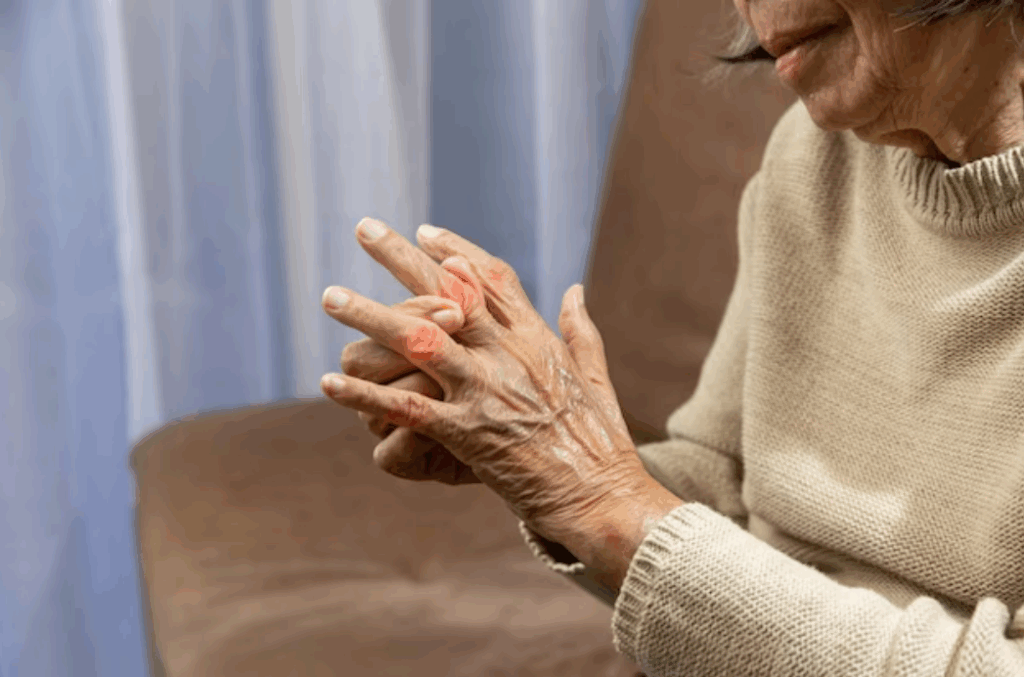If you're grappling with migraines or chronic pain in North Carolina, you might be curious about natural remedies that could offer relief without the side effects of pharmaceuticals. Options like herbal supplements and essential oils have gained attention for their potential benefits. You might find that certain remedies resonate with you while others don't, and understanding the nuances can be essential. But what about combining these methods or exploring lesser-known therapies that could elevate your relief? Let's explore what might work best for your unique situation.
Understanding Migraines and Chronic Pain
Migraines can be a debilitating experience, often leaving you feeling overwhelmed and desperate for relief. Understanding migraines and the chronic pain they cause is essential in finding effective remedies. A migraine is more than just a headache; it's a complex neurological condition that can include a range of symptoms, such as intense throbbing pain, nausea, and sensitivity to light and sound.
You may notice that these symptoms can last from a few hours to several days, disrupting your daily life. Chronic pain accompanies many migraine sufferers, leading to a cycle of discomfort that can feel relentless. You might find yourself in a constant state of worry about when the next attack will strike, which only exacerbates the stress and anxiety you already experience.
This cycle can create a significant emotional toll, making it harder to cope with both the physical and psychological aspects of your condition. Recognizing the difference between a regular headache and a migraine is vital. Migraines often present with additional symptoms like aura—visual disturbances that can precede the headache.
Understanding these nuances helps you communicate more effectively with healthcare providers and can lead to better management strategies.
Common Triggers in North Carolina
Identifying the common triggers for migraines can greatly improve your ability to manage them, especially if you live in North Carolina. The state's unique climate, lifestyle, and environment can contribute to migraine occurrences.
For instance, the humidity and temperature changes often found in North Carolina can trigger migraines. If you're sensitive to weather patterns, you might notice that sudden shifts in temperature or barometric pressure lead to painful episodes.
Another common trigger in North Carolina is seasonal allergies. The pollen from blooming flowers and trees can exacerbate migraine symptoms for many people. If you suffer from allergies, keeping track of pollen counts during the peak seasons can help you prepare and possibly reduce your migraine frequency.
Stress is another prevalent trigger. The hustle and bustle of daily life, combined with unique regional pressures like tourism and seasonal work, can heighten stress levels. Identifying your personal stressors and finding ways to manage them can be vital for migraine prevention.
Diet can also play a significant role. Many North Carolinians enjoy rich foods and beverages, but ingredients like aged cheeses, processed meats, and excessive caffeine can trigger migraines. Keeping a food diary can help you pinpoint any dietary triggers.
Lastly, dehydration is often overlooked. The warm weather can lead to increased fluid loss, making it essential to stay hydrated to prevent migraines.
Herbal Supplements for Relief
When seeking relief from migraines, herbal supplements can be a valuable addition to your management plan. Many people find that certain herbs help reduce the frequency and intensity of their migraine attacks, offering a natural alternative or complement to conventional treatments.
One popular option is feverfew, a herb known for its anti-inflammatory properties. Research suggests that taking feverfew may help lower the number of migraines you experience. You can find it in capsule form or as dried leaves for tea.
Another effective herb is butterbur, which has shown promise in reducing migraine frequency as well. Just make sure you choose a PA-free extract to avoid potential liver toxicity.
Ginger is another herbal supplement worth considering. It's known for its ability to alleviate nausea, a common symptom associated with migraines. Additionally, its anti-inflammatory properties may help reduce pain. You can consume ginger in various forms, including tea or capsules.
Don't overlook the benefits of magnesium, a mineral that can also be taken as a supplement. Some studies indicate that magnesium deficiency might be linked to migraines, so incorporating this mineral into your routine could offer some relief.
As with any supplement, it's important to consult with a healthcare professional before starting, especially if you're on other medications. They can help you determine the right dosage and make sure there are no interactions.
Essential Oils and Aromatherapy
Essential oils and aromatherapy can be powerful tools in managing migraine symptoms. When you inhale the soothing scents of essential oils, you may notice a reduction in headache intensity and frequency. Oils like lavender, peppermint, and eucalyptus are particularly effective.
Lavender oil is known for its calming properties, making it great for stress-related migraines. Just a few drops on your pillow or a gentle massage on your temples can work wonders.
Peppermint oil, with its invigorating scent, can provide a cooling sensation that helps alleviate tension headaches. You can dilute it with a carrier oil and apply it to your forehead or inhale it directly from the bottle.
Eucalyptus oil, on the other hand, can aid in clearing sinus pressure, which is beneficial if your migraines stem from sinus issues.
To fully enjoy the benefits of these oils, consider using a diffuser. This method allows you to disperse the aroma throughout your space, creating a calming environment.
You might also explore creating a personal inhaler by adding a few drops of your chosen oil to a cotton ball and placing it in a small container. When a migraine strikes, you can simply take a whiff.
Acupuncture and Acupressure Benefits
Acupuncture and acupressure offer effective pain relief by targeting specific points in your body to release tension and improve energy flow.
These practices take a holistic healing approach, addressing not just the symptoms but the underlying causes of your migraines.
If you're looking for natural alternatives, exploring these techniques could be beneficial for your overall well-being.
Pain Relief Mechanism
Harnessing the ancient techniques of acupuncture and acupressure can provide significant relief for those suffering from migraines. These methods target specific points on your body to stimulate energy flow and promote healing.
When you undergo acupuncture, fine needles are inserted into strategic points, which helps release endorphins and serotonin. This process can reduce pain perception and alleviate the intensity and frequency of your migraines.
With acupressure, you apply physical pressure to these same points using your fingers or hands. This technique not only encourages blood circulation but also relaxes tense muscles, which can be a major contributor to migraine pain. By practicing acupressure on your own, you can empower yourself to manage pain whenever it strikes.
Both acupuncture and acupressure can also address underlying causes, such as stress and tension, that often trigger migraines. Incorporating these practices into your routine mightn't only provide immediate relief but also help establish long-term pain management strategies.
As you explore these ancient remedies, you'll find that they can complement other treatments, allowing you to regain control over your wellbeing and improve your quality of life.
Holistic Healing Approach
Many people find that incorporating a holistic healing approach, which includes acupuncture and acupressure, can greatly enhance their migraine management.
These ancient practices focus on restoring balance and promoting the body's natural healing abilities, which can lead to significant relief from chronic pain and migraines.
Here are three key benefits of acupuncture and acupressure:
- Pain Reduction: Both techniques stimulate specific points on your body, releasing endorphins and reducing pain levels effectively.
- Improved Circulation: By enhancing blood flow, acupuncture and acupressure can help alleviate tension and inflammation, addressing the root causes of migraines.
- Stress Relief: These therapies promote relaxation and reduce stress, which are vital factors in managing migraine triggers.
Incorporating acupuncture and acupressure into your routine can offer you a natural, drug-free alternative to managing your migraines.
Many people report fewer headache days and a significant reduction in pain intensity after regular sessions.
Consider giving these holistic approaches a try; they might just be the relief you're looking for!
Dietary Changes to Consider
Frequently, dietary changes can play an essential role in managing migraines. What you eat can either trigger or alleviate your symptoms. To start, consider keeping a food diary. This helps you identify any potential food triggers by tracking what you eat and when migraines occur. Common triggers include aged cheeses, processed meats, alcohol, and foods containing MSG. Once you've pinpointed your triggers, you can eliminate them from your diet.
Next, focus on incorporating whole foods. Fresh fruits, vegetables, whole grains, and lean proteins can provide vital nutrients that support overall health. Omega-3 fatty acids, found in fatty fish like salmon and walnuts, can reduce inflammation and may help lessen the frequency of migraines. Staying hydrated is also essential; aim for at least eight glasses of water a day, as dehydration is a common headache trigger.
Some people find relief by maintaining regular meal times. Skipping meals or fasting can lead to fluctuations in blood sugar levels, which might trigger a migraine. Aim for balanced meals that include protein, healthy fats, and complex carbohydrates to keep your energy levels stable.
Finally, consider reducing caffeine intake. While some people find that a small amount of caffeine can help alleviate a migraine, for others, it can be a trigger. Experiment with your caffeine consumption to see what works best for you.
Mindfulness and Meditation Techniques
In addition to dietary changes, incorporating mindfulness and meditation techniques can greatly help manage migraines. These practices can reduce stress, enhance your awareness, and improve your overall mental well-being, which is vital when combating chronic pain.
Here are three effective techniques you can try:
- Deep Breathing Exercises: Start by finding a quiet space where you won't be disturbed. Close your eyes and take deep, slow breaths. Focus on your inhalations and exhalations, allowing your body to relax with each breath. This simple practice can help reduce tension and promote a sense of calm.
- Guided Meditation: Utilize apps or online videos that offer guided meditation sessions. These can range from a few minutes to longer sessions, focusing on relaxation and pain relief. Following along with a soothing voice can help you stay engaged and centered, making it easier to quiet your mind.
- Body Scan Technique: Lie down comfortably and start by focusing on your toes, gradually moving up through your body. Notice any tension and consciously relax each part as you go. This technique helps you become aware of where you hold stress, allowing you to release it.
Exercise and Physical Therapy
Regular exercise can greatly reduce the frequency and intensity of your migraines.
Incorporating physical therapy into your routine helps address any underlying issues that might contribute to your pain.
Together, these approaches can empower you to manage your migraines more effectively.
Benefits of Regular Exercise
Exercise offers a powerful antidote to the debilitating effects of migraines. Regular physical activity can greatly reduce the frequency and intensity of your headaches. When you incorporate exercise into your routine, you're not just breaking a sweat; you're also empowering your body to cope with pain more effectively.
Here are three key benefits of regular exercise for migraine sufferers:
- Stress Reduction: Exercise releases endorphins, the body's natural painkillers, which help alleviate stress—a common trigger for migraines. By managing your stress levels, you're likely to experience fewer headaches.
- Improved Sleep: Regular physical activity can enhance your sleep quality. Better sleep can lead to fewer migraines, as sleep disturbances are often linked to headache onset.
- Increased Blood Circulation: Exercise boosts blood flow and oxygen delivery to your brain, which can help prevent the onset of migraines by keeping your vascular system healthier.
Role of Physical Therapy
When dealing with migraines, physical therapy can be a game changer, combining targeted exercises and manual techniques to alleviate pain and improve function. You mightn't realize it, but specific movements can help release tension in your neck and shoulders, areas often linked to migraine triggers.
A physical therapist will work closely with you to develop a personalized plan. This may include stretching, strengthening exercises, and postural training tailored to your needs. By focusing on these areas, you can enhance blood flow, reduce muscle tightness, and ultimately lower the frequency and severity of your migraines.
In addition to exercises, manual therapy techniques, such as massage and joint mobilization, can greatly relieve pain. These methods address muscle imbalances and help restore proper movement patterns, leading to less pain overall.
Don't forget, consistency is key. Regular sessions with your therapist, combined with home exercises, can lead to long-lasting results.
Support Groups and Community Resources
Many people find that joining support groups and accessing community resources can greatly alleviate the burden of migraines. These connections offer not just emotional support but also practical advice and shared experiences that can make a significant difference in your daily life.
When you're dealing with chronic pain, knowing you're not alone can be incredibly comforting.
Here are three types of resources you might consider:
- Local Support Groups: Many communities in North Carolina host support groups specifically for migraine sufferers. These groups provide a safe space to share your experiences and learn coping strategies from others facing similar challenges.
- Online Communities: If in-person meetings aren't feasible, don't worry! Online forums and social media groups allow you to connect with individuals worldwide. These platforms can be great for exchanging tips, discussing triggers, and even sharing natural remedies that have worked for you.
- Health Workshops: Look for community health centers or wellness clinics that offer workshops focusing on pain management. These sessions can provide valuable insights into holistic approaches and self-care techniques that might help reduce your migraine frequency and intensity.
Conclusion
Incorporating natural remedies into your routine can be a powerful way to manage migraines and chronic pain. By exploring herbal supplements, essential oils, and mindfulness practices, you can find what works best for you. Don't forget to consult with healthcare professionals to tailor these remedies to your needs. Remember, you're not alone—support groups and community resources in North Carolina can provide valuable encouragement and understanding as you navigate your journey toward relief.



